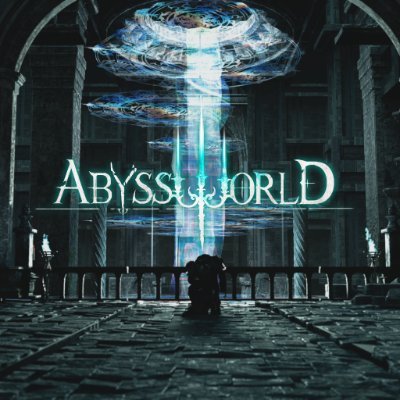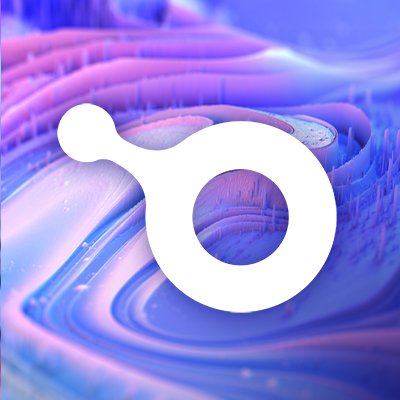GameFi market is gradually warming up. Ordinary users should not miss the following newly launched projects
Author: Kasou Kazoku
In the past three months, on-chain data for blockchain games has shown a warming trend, with active users skyrocketing by 62% and transaction volume surging nearly 98%. This is not just a numerical leap, but a signal that blockchain games are stepping into the spotlight.

Recent overall data performance in the blockchain gaming industry
Amid this wave of enthusiasm, a series of brand new blockchain games are gearing up to make their debut. From simple token transactions to rich gaming experiences, these upcoming games not only herald a new chapter for the industry but also carry the mission of reshaping player experiences. Next, we will delve into these games to see how they will ignite a new flame in the market.
High Expectations from the Entire Industry: Upcoming New Blockchain Game Projects Exhibit the Following Characteristics
With the in-depth application of blockchain technology in the gaming industry, a batch of new blockchain games is preparing to meet players in the near future. These games are not just technological innovations; they carry the industry's hopes of providing richer and more interactive gaming experiences than ever before.
1. Diverse Game Types:
The upcoming games cover a wide range of genres, from Action Role-Playing Games (ARPG) to strategy simulations and casual entertainment. This diversity not only caters to different player tastes but also demonstrates that blockchain games are no longer limited to a single model, but are moving towards the diversity of traditional gaming.
2. Bold Innovations in Economic Models:
A notable feature of the new generation of blockchain games is their unique economic models. These games create an economic system that attracts players while maintaining sustainable development by integrating tokens, NFTs (non-fungible tokens), and other blockchain elements. From in-game currencies to asset trading, these economic models provide players with new ways to participate and incentive mechanisms.
3. Enhanced Social Interaction Elements:
Modern blockchain games increasingly emphasize social and interactive elements. Many upcoming games not only offer single-player experiences but also encourage players to interact, cooperate, and even compete in the virtual world. This enhancement of social aspects not only increases the stickiness of the games but also provides players with a more vibrant and interactive gaming world.
4. Outstanding Playability and Immersion:
Compared to early blockchain games that primarily focused on simple economic activities, the new generation of games places greater emphasis on playability and immersion. Game developers are striving to create works that can compete with traditional games, featuring appealing visuals, complex storylines, and deep game mechanics.
5. Clear Openness and Scalability:
These upcoming games showcase the openness and scalability of blockchain gaming. Many games are not just closed systems but provide platforms that allow players, developers, and even community members to participate in the creation and development process of the games.
With the addition of these new games, the blockchain gaming market is ushering in unprecedented vitality and diversity. These games will not only bring new experiences to players but may also change people's overall perception of blockchain games. Next, we will explore some of the most representative new games, analyzing their features and potential impacts.
Are There Opportunities for You to Earn While Playing? A Look at Recently Upcoming New Blockchain Game Projects:
As the blockchain gaming industry continues to thrive, several highly anticipated new games are set to launch, bringing players unprecedented gaming experiences. Below is a detailed introduction to a few notable new games:
1. Seraph:
Seraph is a dark-themed ARPG Web3 game, incubated by South Korean gaming giant Actoz Soft. The game conducted two internal tests in April and July this year, attracting 30,000 player registrations, showcasing an impressive first-day retention rate of 72% and a 7-day retention rate of 45%.
Seraph advocates a Free to Play model and supports both PC and mobile platforms, providing convenient access for a wide range of players. In terms of economic model, Seraph centers around the SRF token, combining Unique NFTs and Soul Crystals to offer players a rich economic interaction experience. Gameplay-wise, Seraph inherits the mechanics of traditional Diablo games, with equipment as core NFT assets, and features multiple dungeons and raids. Notably, as the game's launch approaches, the value of Seraph's Pass cards has seen a significant increase, reflecting players' high expectations for the game.
2. Abyss World:
Abyss World is an action role-playing game developed by Metagame Industries, based on the Sui Layer 1 blockchain, and is regarded as a GameFi benchmark within the Sui ecosystem. The game is launched under a Free to Play model, dividing players into casual and professional categories, providing tailored gaming experience paths for different types of players.

In terms of economic model, Abyss World combines AWT (game governance currency), MGC (accumulation currency), and NFTs to offer a rich array of in-game economic activities. Players can earn in-game tokens through PVE tasks and use these tokens to upgrade weapons and summons, while professional players can gain more profits by participating in PVP. The uniqueness of Abyss World lies in its innovative gameplay and economic model, providing players with a virtual world full of challenges and opportunities.
3. Xterio:
Xterio has gained attention with a $15 million investment from Binance, accumulating a total of $55 million in funding. It has announced 25 projects, including 4 self-developed projects and 21 collaborative projects. This move showcases Xterio's extensive involvement in the blockchain gaming sector and its ambitions in the market. However, most games are still in pre-registration and development stages, with four self-developed projects not yet fully open, meaning Xterio's games still need to be tested by the market, and their future performance is highly anticipated.

Notably, Xterio launched its protocol token XTER on September 1, aimed at powering the Xterio gaming ecosystem and becoming a key factor in driving the development of its various game projects. Additionally, Xterio launched a game-centric marketplace, Xterio Marketplace, on October 22. This marketplace not only provides players with a centralized platform for trading game assets but also offers more opportunities and resources for game developers, further expanding the influence and accessibility of the Xterio ecosystem.
The challenge Xterio faces lies in how to more accurately position its development direction and how to highlight its advantages in a competitive market. With the launch of its token and marketplace, Xterio's future movements in game development and market performance will become a focal point of industry attention.
4. Debeats:
DEBEATS is an innovative Web3 music NFT game based on the Polygon blockchain, successfully merging elements of music, creation, and earning. This game breaks traditional gaming boundaries with its unique gameplay and token economic model, introducing a brand new gaming experience.
In DEBEATS, players can not only enjoy challenging music rhythm games but also earn by creating and sharing their own music scores. This creative participation offers players a chance to express themselves while bringing diverse content to the game community. As the player base grows, new and unique content will continue to be added to the game, maintaining its vitality and appeal.

The economic model of DEBEATS includes in-game coins DG purchased through in-app purchases and game points DP, which can be earned by playing songs and participating in seasonal leaderboards, and can be exchanged for the on-chain token $BEATS. The $BEATS token not only has various uses within the game, such as unlocking special content and enhancing competitiveness, but also allows players to participate in governance decisions within the DEBEATS ecosystem. Players holding $BEATS tokens can vote, propose suggestions, and influence the development and future direction of the game.
This token economic model of DEBEATS not only incentivizes player participation and creativity but also lays the foundation for the sustainable development of the game ecosystem. Furthermore, the game is now available on the Apple App Store and Google Play for Android, providing convenient access channels for players worldwide.
DEBEATS' innovative gameplay and token economic model make it a rising star in the blockchain gaming market, showcasing the infinite possibilities of Web3 games in gameplay innovation and economic model design. As the game develops and the player base grows, DEBEATS is expected to become an important milestone in the music gaming field.
The Blockchain Gaming Industry Continues to Evolve, and New Value Opportunities Will Continue to Emerge
As blockchain technology continues to deepen and expand in the gaming industry, the new generation of blockchain games is changing our perception of traditional games. These games not only showcase innovation in technology but also set new standards in gameplay, economic models, and community participation. With more innovative game works emerging, the ecosystem of blockchain gaming is becoming increasingly rich and diverse.
1. Integration of Technological Innovation and Player Experience:
The rapid development of the blockchain gaming field proves that the close integration of technological innovation and high-quality player experience is key to the industry's growth. By introducing NFTs, tokenized economies, and decentralized game governance mechanisms, blockchain games provide players with new ways to participate, making them part of the game ecosystem rather than just passive participants.
2. Market Potential and Challenges Coexist:
Upcoming blockchain games, such as Seraph, Abyss World, and DEBEATS, demonstrate the enormous market potential. However, these games also face various challenges, including how to attract and retain player engagement, how to balance in-game economies, and how to stand out in a competitive market.
3. Future Development Trends of the Industry:
The future development of the blockchain gaming industry will depend on strategies to address these challenges. With technological advancements and market maturation, more high-quality game works are expected to emerge, offering more immersive and interactive gaming experiences. Furthermore, community participation and player feedback will become key factors driving the continuous evolution of these games.












